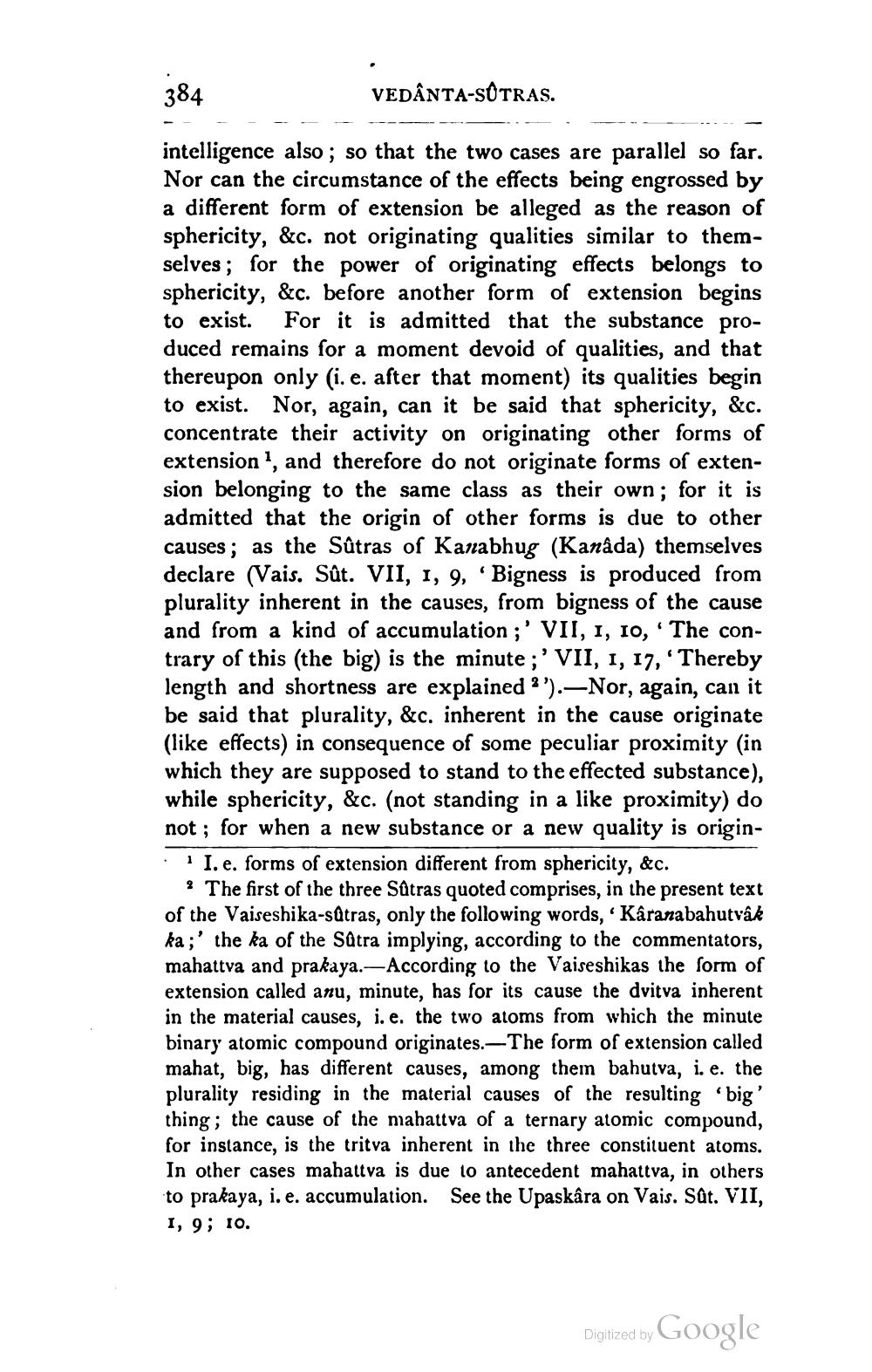________________
384
VEDÂNTA-SOTRAS.
intelligence also; so that the two cases are parallel so far. Nor can the circumstance of the effects being engrossed by a different form of extension be alleged as the reason of sphericity, &c. not originating qualities similar to themselves; for the power of originating effects belongs to sphericity, &c. before another form of extension begins to exist. For it is admitted that the substance produced remains for a moment devoid of qualities, and that thereupon only (i. e. after that moment) its qualities begin to exist. Nor, again, can it be said that sphericity, &c. concentrate their activity on originating other forms of extension, and therefore do not originate forms of extension belonging to the same class as their own; for it is admitted that the origin of other forms is due to other causes; as the Sûtras of Kanabhug (Kanada) themselves declare (Vais. Sût. VII, 1, 9, 'Bigness is produced from plurality inherent in the causes, from bigness of the cause and from a kind of accumulation ;' VII, 1, 10, 'The contrary of this (the big) is the minute;' VII, 1, 17, 'Thereby length and shortness are explained ?).-Nor, again, can it be said that plurality, &c. inherent in the cause originate (like effects) in consequence of some peculiar proximity (in which they are supposed to stand to the effected substance), while sphericity, &c. (not standing in a like proximity) do not ; for when a new substance or a new quality is origin: I.e. forms of extension different from sphericity, &c.
? The first of the three Sätras quoted comprises, in the present text of the Vaiseshika-s@tras, only the following words, Karanabahutvak ka;' the ka of the Sätra implying, according to the commentators, mahattva and prakaya.—According to the Vaiseshikas the form of extension called anu, minute, has for its cause the dvitva inherent in the material causes, i.e. the two atoms from which the minute binary atomic compound originates.-The form of extension called mahat, big, has different causes, among them bahutva, i. e. the plurality residing in the material causes of the resulting big' thing; the cause of the mahattva of a ternary atomic compound, for instance, is the tritva inherent in the three constituent atoms. In other cases mahattva is due to antecedent mahattva, in others to prakaya, i.e. accumulation. See the Upaskâra on Vais. Sût. VII, 1, 9; 10.
Digized by Google




